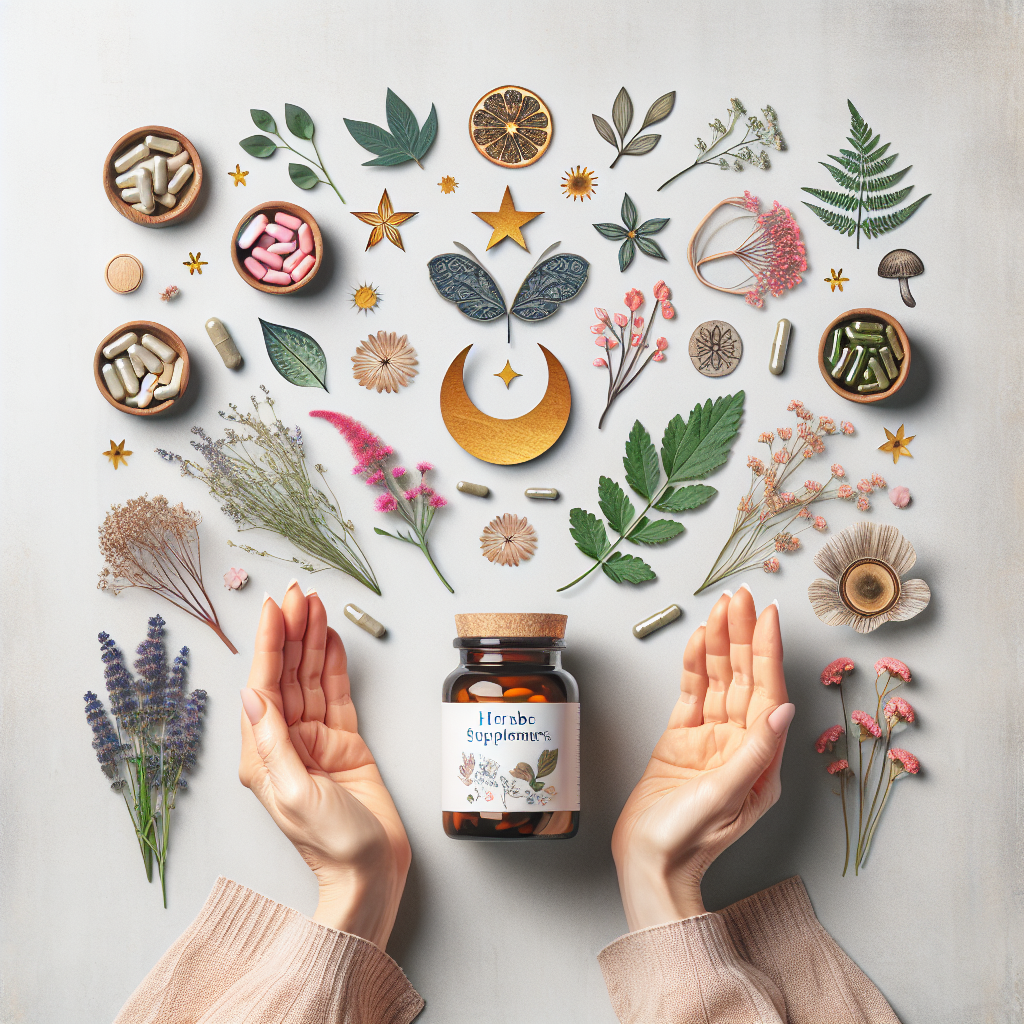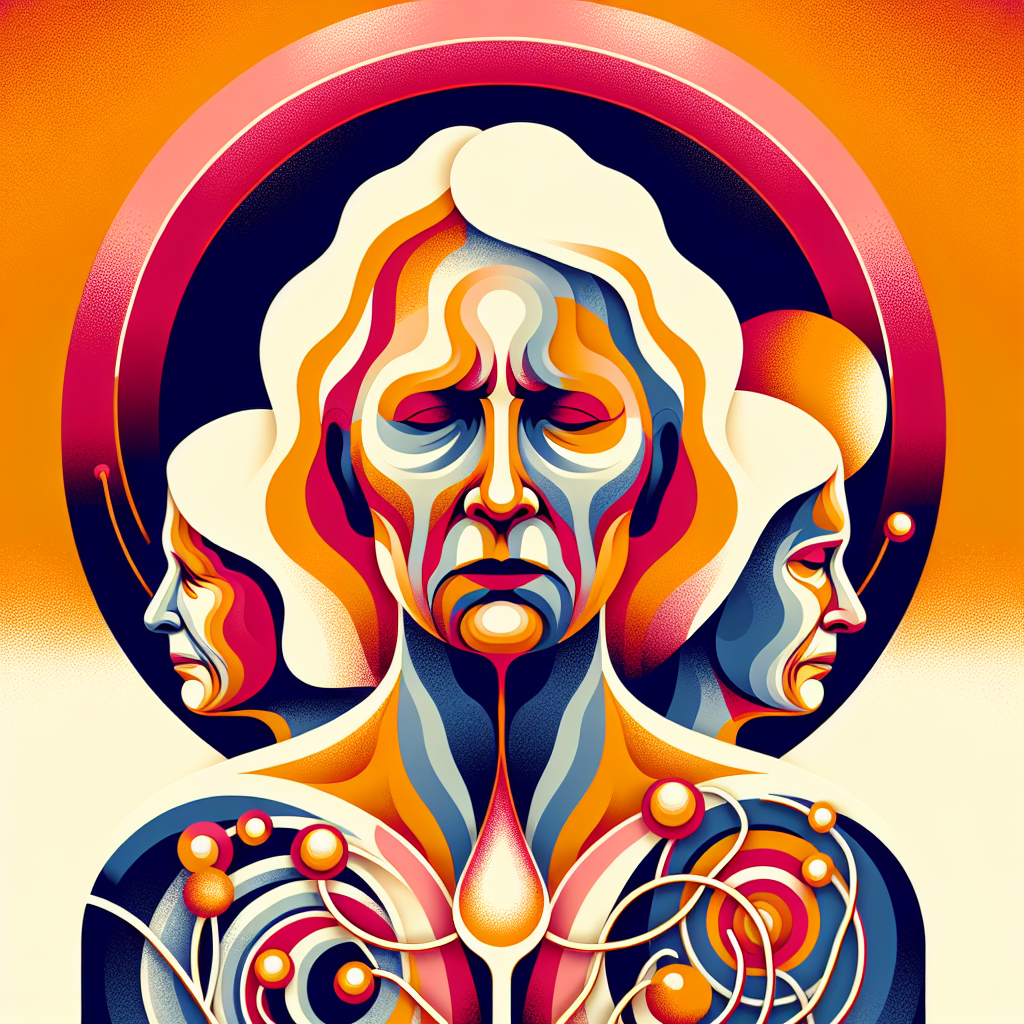
Navigating Menopause: A Chaotic Rollercoaster
Navigating menopause can feel like a chaotic rollercoaster, but Kalms offers a natural remedy to help smooth the ride.
Discover how these herbal supplements, designed to tackle:
- Sleep disturbances
- Anxiety
- Mood swings
Might be your key to finding calm amidst the hormonal storm.
Finding Calm in the Storm: How Kalms for Menopause Can Help You Navigate the Change
Let's face it, ladies—menopause can feel like Mother Nature's not-so-funny practical joke. One minute you're freezing, the next you're convinced your office thermostat is broken (spoiler alert: it's not). Your sleep schedule? More erratic than a toddler on Halloween candy. And don't even get us started on the mood swings that have your family walking on eggshells. If this rollercoaster sounds familiar, you might be wondering about Kalms for menopause and whether these herbal supplements could be your ticket to smoother sailing.
The Menopause Mayhem: Why We're All Looking for Solutions
Before we dive into Kalms for menopause, let's acknowledge what we're dealing with here. Menopause isn't just about the end of periods (though wouldn't that be nice if that's all it was?). It's a complex hormonal transition that can affect everything from your temperature regulation to your emotional wellbeing.
Hot flashes, night sweats, anxiety, irritability, and insomnia are just a few of the unwelcome guests that can crash your menopause party. According to research published in the Journal of Women's Health, up to 80% of women experience hot flashes during menopause, and nearly 60% report sleep disturbances that impact their quality of life.
With statistics like these, it's no wonder we're all searching for solutions that don't involve cranking the AC to arctic levels or apologizing to our partners for last night's 3 AM tossing and turning session.
What Are Kalms and How Do They Work for Menopause?
Kalms is a range of traditional herbal medicinal products that have been used for decades to address various symptoms that coincidentally overlap with menopause experiences. While not specifically marketed exclusively for menopause in all regions, many women have turned to Kalms for menopause symptom relief.
The Kalms range includes several products, but the ones most commonly considered for menopause symptoms include:
Kalms Night
This variation contains valerian root, which has been used traditionally for its mild sedative effects. For women experiencing menopause-related sleep disturbances, Kalms Night may help promote better sleep without the grogginess associated with some prescription sleep aids.
A study published in the journal Menopause found that valerian could improve sleep quality in postmenopausal women, with 30% of participants reporting better sleep compared to a placebo group.
Kalms Day
Contains hops and valerian, which may help manage daytime anxiety and stress—both common companions during the menopause journey. The gentle calming effect can take the edge off without making you feel like you're walking through molasses.
Kalms Lavender
A more recent addition to the Kalms family, this one-a-day capsule contains lavender oil, which has been studied for its effects on anxiety and mood disturbances—symptoms that many women report intensifying during menopause.
The Science Behind Kalms for Menopause Relief
When considering Kalms for menopause symptom management, it's important to understand the evidence behind these herbal remedies.
Valerian root, a key ingredient in several Kalms products, has been the subject of scientific research for its effects on sleep and anxiety. A systematic review published in the American Journal of Medicine found that valerian may improve sleep quality without significant side effects, though the authors noted that more research is needed.
For women navigating menopause, this could translate to fewer nights spent counting sheep and more mornings waking up refreshed—a small victory that can make a big difference in your daily life.
Lavender, found in Kalms Lavender, has shown promise for anxiety management. A 2017 study in Mental Health Clinician found that lavender oil capsules similar to those in Kalms Lavender demonstrated anxiolytic effects comparable to low doses of benzodiazepines (common anti-anxiety medications) but without the risk of dependence or sedation.
Real Women, Real Experiences: Kalms for Menopause Symptom Relief
Sarah, 52, shares her experience: "I was skeptical about trying Kalms for menopause symptoms, especially my sleep problems. But after a month of using Kalms Night, I'm falling asleep faster and staying asleep longer. I'm not saying it's a miracle cure, but I'll take any improvement I can get!"
While anecdotal evidence like Sarah's is encouraging, it's worth noting that responses to herbal supplements like Kalms for menopause can vary widely. What works wonders for your book club buddy might do absolutely nothing for you.
How to Incorporate Kalms into Your Menopause Management Plan
If you're considering Kalms for menopause symptom relief, here's a practical guide to getting started:
1. Identify Your Primary Symptoms
Are you mainly struggling with sleep? Kalms Night might be your best bet. Daytime anxiety more your issue? Kalms Day could be worth exploring. By matching the product to your specific menopause symptoms, you're more likely to see results.
2. Start Low and Go Slow
As with any supplement, it's wise to start with the lowest recommended dose and see how your body responds. Kalms for menopause symptom management isn't a race—it's about finding what works for your unique body chemistry.
3. Be Patient
Herbal remedies like Kalms typically don't work overnight. Give them at least 2-4 weeks before deciding whether they're helping your menopause symptoms.
4. Keep a Symptom Journal
Track your menopause symptoms before and after starting Kalms. This objective record can help you determine if the supplements are making a difference or if it's just a placebo effect (which, by the way, can be powerful in its own right!).
Beyond Kalms: A Holistic Approach to Menopause Management
While Kalms for menopause symptom relief can be part of your strategy, the most successful approaches tend to be multifaceted. Consider complementing your Kalms regimen with:
Lifestyle Modifications
- Exercise: Regular physical activity has been shown to reduce hot flashes and improve sleep quality during menopause. Even a 30-minute daily walk can make a difference.
- Dietary Adjustments: Some women find that reducing caffeine, alcohol, and spicy foods helps minimize hot flashes. Adding foods rich in phytoestrogens (like soy products) may also help balance hormones naturally.
- Stress Management: Practices like yoga, meditation, or deep breathing can help manage the stress that often exacerbates menopause symptoms.
Other Complementary Approaches
- Cognitive Behavioral Therapy (CBT): Research published in the Journal of Clinical Oncology found that CBT can be effective for managing hot flashes and night sweats.
- Acupuncture: Some studies suggest acupuncture may help reduce hot flash frequency and intensity.
Safety Considerations: What to Know Before Trying Kalms for Menopause
While Kalms products are generally considered safe for most women, they're not without potential concerns:
Potential Interactions
Valerian may interact with certain medications, including:
- Sedatives and sleep medications
- Antidepressants
- Alcohol
If you're taking any prescription medications, it's essential to consult with your healthcare provider before adding Kalms for menopause symptom management.
Not for Everyone
Kalms may not be suitable for women with certain health conditions, including liver disease. Always read the product information carefully and discuss with your healthcare provider if you have any underlying health concerns.
Quality Matters
Not all herbal supplements are created equal. Stick with reputable brands like Kalms that adhere to good manufacturing practices and quality control standards.
When to Consider Alternatives to Kalms for Menopause
While many women find relief with Kalms for menopause symptoms, they're not the right solution for everyone. Consider exploring other options if:
- You've tried Kalms for 4-6 weeks with no improvement in your menopause symptoms
- Your symptoms are severe enough to significantly impact your quality of life
- You experience side effects from Kalms products
In these cases, it may be time to discuss other approaches with your healthcare provider, including hormone replacement therapy (HRT) or prescription medications specifically designed to address menopause symptoms.
The Bottom Line: Can Kalms Help You Navigate Menopause?
Menopause is a unique journey for every woman, and finding the right tools to navigate it often involves some trial and error. Kalms for menopause symptom management represents one potential tool in what should ideally be a diverse toolkit.
For many women, the natural approach offered by Kalms provides meaningful relief from sleep disturbances, anxiety, and stress during menopause without the side effects associated with some prescription options. The relatively low risk profile makes Kalms worth considering, especially for women with mild to moderate symptoms or those who prefer to start with gentler interventions.
Remember that menopause, while challenging, is also a natural transition—not a disease that needs to be "cured." The goal isn't to eliminate every hot flash or mood swing but to find a balance that allows you to live your life fully and joyfully during this new chapter.
Whether Kalms becomes your menopause management MVP or just one player on your wellness team, approaching this time with knowledge, patience, and even a sense of humor can make all the difference. After all, you've navigated decades of hormonal ups and downs already—with the right support, menopause is just one more adventure you're more than capable of handling.
So go ahead and explore whether Kalms for menopause is right for you. Your future well-rested, cool-as-a-cucumber self might just thank you for it!
















